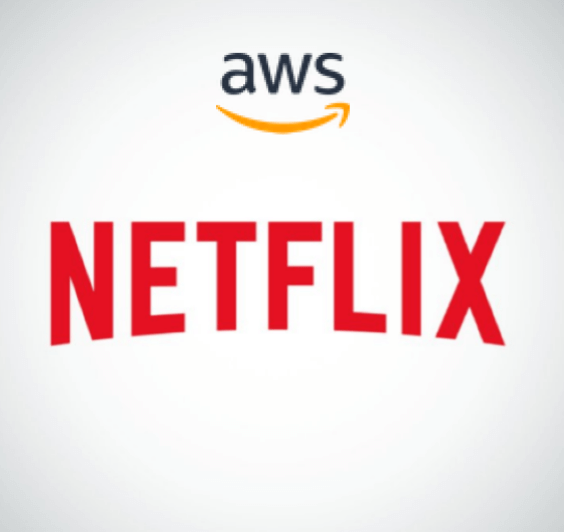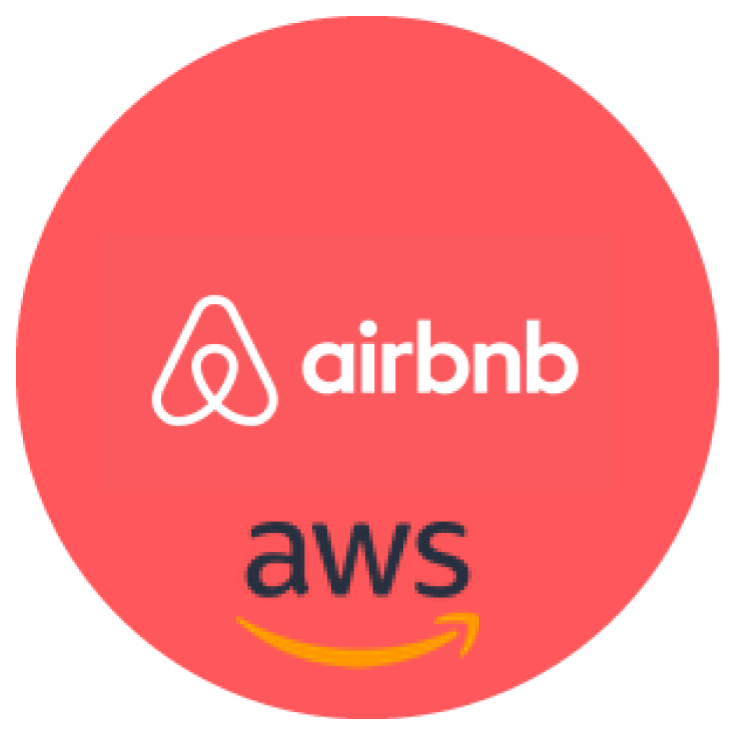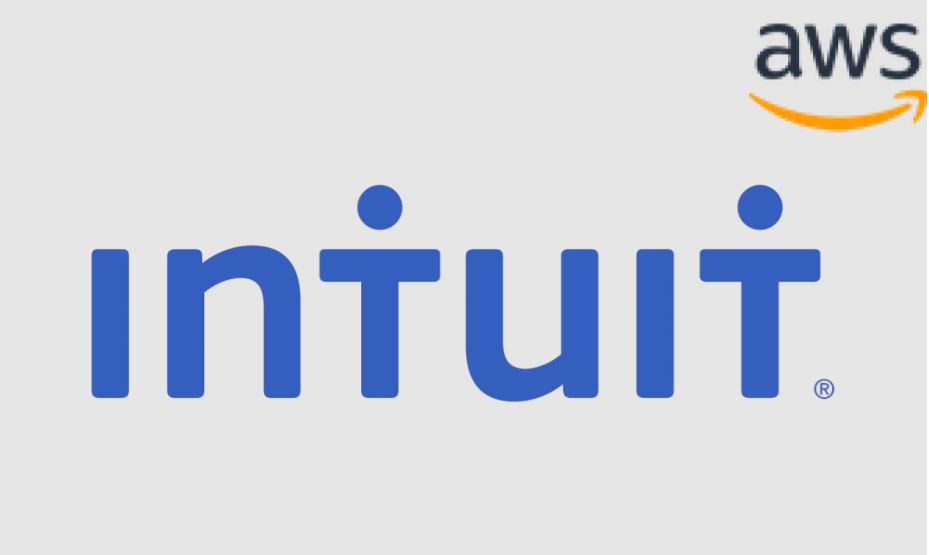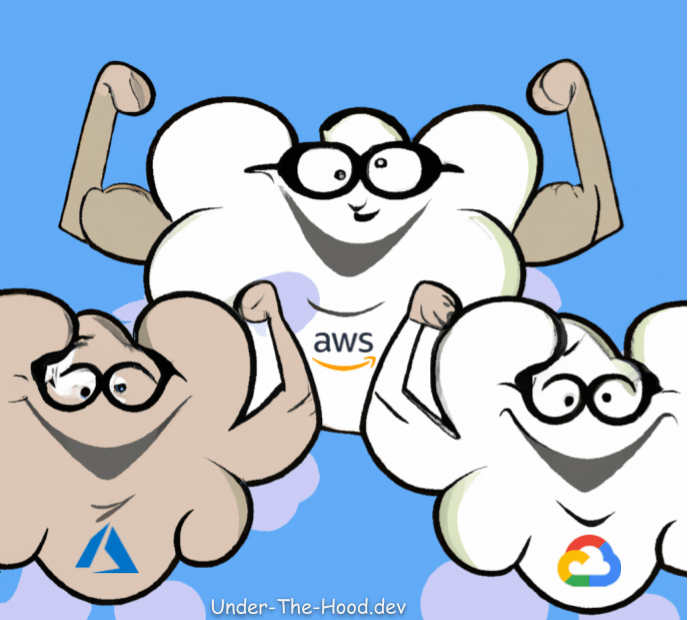As businesses continue to move toward digital transformation, cloud computing has become an essential part of their infrastructure. It provides many benefits for businesses, including cost savings, scalability, and flexibility. However, choosing the right cloud provider can be a daunting task.
In this article, we will compare AWS vs Azure vs GCP (Google Cloud Services) and provide you with the information you need to make an informed decision.
Introduction to Cloud Computing and the Importance of Cloud Providers
Definition of Cloud Computing
Cloud computing is the delivery of computing services, including servers, storage, databases, networking, software, analytics, and intelligence, over the internet.
Cloud providers offer businesses the ability to use these services without the need for on-premises infrastructure offering a variety of services, including:
- Infrastructure-as-a-Service (IaaS)
- Platform-as-a-Service (PaaS)
- Software-as-a-Service (SaaS)
How Cloud Providers Can Benefit Businesses: Exploring the Advantages of Cloud Services
Cloud providers offer businesses a range of benefits that can help them save money, increase flexibility, improve security, and work more collaboratively:
- Scalability: Cloud providers allow businesses to easily scale their computing resources up or down as needed, without having to invest in expensive hardware or worry about managing it themselves. This makes it easier for businesses to respond to changes in demand, and to quickly adapt to new opportunities.
- Cost-effectiveness: By using cloud services, businesses can save money on hardware, software, and maintenance costs. For instance, cloud providers often offer pricing plans that allow paying only for what you use, which can be more cost-effective than purchasing and maintaining your own hardware and software.
- Flexibility: Cloud providers offer a wide range of services and tools that can be tailored to meet the specific needs of businesses. This allows you to choose the services you need and customize them to their requirements.
- Security: Cloud providers typically have robust security measures in place to protect your data and applications. This includes features such as data encryption, secure access controls, and regular security audits.
- Reliability: Cloud providers offer high levels of availability and uptime, with many providers offering service level agreements (SLAs) that guarantee a certain level of uptime. This can help businesses avoid costly downtime and ensure that their applications and data are always available when they need them.
- Collaboration: Cloud providers offer a range of collaboration tools that allow businesses to work together more efficiently, regardless of their location. This includes tools for file sharing, video conferencing, and project management, among others.
By using cloud services, businesses can focus on their core competencies and leave the management of their IT infrastructure to the experts.
AWS, Azure, and Google Cloud Services (GCP) market share
In this section, we’ll take a look at the three leading cloud providers with the greatest world market share.
The first place. AWS
- At the start of 2023, AWS has a market share of over 33%, making it the market leader in the cloud computing industry.
- In 2022, AWS generated $80 billion in revenue.
- AWS has been investing heavily in machine learning and artificial intelligence, and in 2021, announced the launch of Amazon SageMaker Reinforcement Learning (RL), a new machine learning service that enables developers to build, train, and deploy RL models.
- AWS has also been investing in quantum computing and announced the launch of Amazon Bracket, a fully managed service that allows customers to experiment with quantum algorithms and run quantum simulations.
The second place. Azure
- Azure is the second-largest cloud computing platform, with a market share of around 23% at the end of 2022.
- In 2022, Azure generated $75.3 billion in revenue, a 15% increase from the previous year.
- Azure has been investing in hybrid cloud solutions, allowing customers to run applications both on-premises and in the cloud.
- Azure has also been investing in edge computing and announced the launch of Azure Edge Zones, a new service that enables customers to deploy and run applications at the edge of the network.
The third place. GCP
- GCP has been growing rapidly and currently has a market share of around 11%.
- In 2022, GCP generated $26.28 billion in revenue, accounting for 9.3 percent of Google’s total revenues.
- GCP has been investing in expanding its AI and machine learning capabilities and has launched a range of services, including AutoML, Cloud AI Platform, and Vertex AI.
- GCP has also been investing in sustainability and has committed to using 100% renewable energy to power its data centers by 2025.
All three platforms have ambitious plans for the future, including expanding their infrastructure, developing new services, and improving sustainability initiatives. As the demand for cloud computing continues to grow, it’s likely that these platforms will continue to invest heavily in their technology and infrastructure to meet the needs of their customers.
Azure vs AWS vs Google Cloud Services: A Comparison of Features and Pricing
In this section, we will compare the features and pricing of Azure, AWS, and Google Cloud Services.
| Azure | AWS | Google Cloud Services | |
| Company | Microsoft | Amazon | |
| Launch time | 2010 | 2006 | 2011 |
| Pricing options | Pay-as-you-go. The Azure Free Trial -$200 of credit to spend on any Azure service over a period of 30 days. -12 months of free services, including 750 hours of B1S virtual machine time, 5 GB of Blob Storage, and 250 GB of SQL Database storage | Pay-as-you-go. The AWS Free Tier -a limited amount of AWS services for free for a period of 12 months -750 hours of Amazon EC2 usage per month, 5 GB of Amazon S3 storage, and 20,000 GET requests from Amazon DynamoDB per month. | Pay-as-you-go. The GCP Free Trial -$300 of credit to spend on any GCP service over a period of 90 days. -12 months of free services, including 1 GB of Cloud Storage, 15 GB of Datastore usage, and 2 million Cloud Functions invocations per month. |
| Geography | Azure has a global infrastructure that consists of over 60 regions within 140 countries. Announced plans: open additional regions in the near future, including regions in Spain, Brazil, and Israel. | AWS has a global infrastructure that consists of 80 availability zones within 25 geographic regions. Future plans: open additional regions in the near future, including regions in Spain, Indonesia, and Switzerland. | GCP has a global infrastructure that consists of over 100 points of presence within 22 geographic regions. Future plans: open additional regions in the near future, including regions in Chile, Saudi Arabia, and Qatar. |
| Compute Services | Azure Virtual Machines | AWS EC2 (Elastic Compute Cloud) | GCP Compute Engine |
| Storage Services | Azure offers Blob Storage | AWS offers S3 (Simple Storage Service) | GCP offers Cloud Storage |
| Managed Database services | Azure SQL Database | Amazon RDS (Relational Database Service) for MySQL, PostgreSQL, Oracle, and others | GCP offers Cloud SQL, for MySQL, PostgreSQL, and SQL Server. |
| Machine Learning Services | Azure Machine Learning | AWS offers Amazon SageMaker | GCP offers Cloud Machine Learning Engine |
| Analytics Services | Azure Stream Analytics provides real-time data processing and analytics services | Amazon Kinesis provides real-time streaming data services | GCP offers Cloud Dataflow provides data processing and analytics services |
| Developer Tools | Azure DevOps Azure Repos Azure Pipelines Azure Artifacts | AWS CodeCommit AWS CodePipeline AWS CodeDeploy | Cloud Source Repositories Cloud Build Cloud Deployment Manager |
Advantages and Disadvantages of Each Cloud Provider
Each cloud provider has its advantages and disadvantages. In this section, we will discuss the advantages and disadvantages of Azure, AWS, and Google Cloud Services.
Azure
Advantages:
- Integration with other Microsoft products and services, such as Office 365 and Dynamics 365
- Easy to use for Windows-based applications
- Strong support for hybrid cloud deployments
- Good security and compliance features
Disadvantages:
- Limited support for open-source technologies
- Limited geographic coverage compared to AWS and Google Cloud Services
- Limited machine learning and artificial intelligence capabilities compared to AWS and Google Cloud Services
AWS
Advantages:
- Widest range of services and features
- Strong support for open-source technologies
- Widest geographic coverage
- Strong machine learning and artificial intelligence capabilities
Disadvantages:
- Can be complex and challenging for beginners
- Limited support for Windows-based applications
- Limited hybrid cloud support compared to Azure
Google Cloud Services
Advantages:
- Strong support for machine learning and artificial intelligence
- Easy to use for Linux-based applications
- Strong support for open-source technologies
- Good geographic coverage
Disadvantages:
- Limited support for Windows-based applications
- Limited hybrid cloud support compared to Azure
- Limited integration with other Google products and services
Use Cases for Azure, AWS, and Google Cloud Services
Choosing the right cloud provider depends on your business’s needs and use cases. In this section, we will discuss the use cases for Azure, AWS, and Google Cloud Services.
Azure
Azure is an excellent choice for businesses that use other Microsoft products and services. Azure offers strong support for Windows-based applications, making it an excellent choice for businesses that use .NET or other Windows-based technologies.
Azure is also an excellent choice for businesses that need strong support for hybrid cloud deployments.
AWS
AWS is an excellent choice for businesses that need the widest range of services and features. AWS offers strong support for open-source technologies, making it an excellent choice for businesses that use Linux-based applications.
AWS is also an excellent choice for businesses that need strong support for machine learning and artificial intelligence.
Google Cloud Services
Google Cloud Services is an excellent choice for businesses that need strong support for machine learning and artificial intelligence. Google Cloud Services offers easy-to-use tools for building and deploying machine learning models.
Google Cloud Services is also an excellent choice for businesses that use Linux-based applications.
Migration to the Cloud and Choosing the Right Provider
Migrating to the cloud can be a complex process. Choosing the right cloud provider is critical to a successful migration. In this section, we will discuss the migration process and choosing the right cloud provider.
Migration to the Cloud
The migration process involves several steps, including assessing your current infrastructure, choosing the right cloud provider, building your infrastructure in the cloud, and migrating your data and applications. The migration process can take several months, depending on the complexity of your infrastructure.
Choosing the Right Provider
Choosing the right provider depends on your business’s needs and use cases. You should consider factors such as pricing, features, support, security, and compliance when choosing a cloud provider.
You should also consider the ease of migration and the availability of tools and resources to help you with the migration process.
A few tips for choosing the right cloud provider
- Evaluate your needs: Start by evaluating your business needs, including your current infrastructure, applications, and workloads. Consider factors like scalability, security, and compliance requirements to determine which cloud provider best fits your needs.
- Consider costs: Compare the pricing models of each cloud provider and assess the costs of running your workloads on each platform. Consider factors like data transfer fees, storage costs, and compute costs.
- Assess reliability and uptime: Look at each cloud provider’s track record for reliability and uptime. Consider factors like the number of data centers, redundancy, and failover options.
- Evaluate security: Assess each cloud provider’s security measures and compliance certifications to ensure they meet your requirements. Consider factors like data encryption, access control, and compliance with industry regulations.
- Check for integration: Look at each cloud provider’s integration capabilities with your existing tools and services. Consider factors like APIs, plug-ins, and developer tools.
- Review support options: Assess each cloud provider’s support options, including customer service, technical support, and documentation. Consider factors like response times, support channels, and self-help resources.
- Test before committing: Consider trying out each cloud provider before committing to a long-term contract. Most cloud providers offer free trials or free tiers that allow you to test their services before making a final decision.
Real-World Examples of Companies Using AWS, Azure, and Google Cloud Services
Many companies use Azure, AWS, and Google Cloud Services for their cloud computing needs. In this section, we will provide some real-world examples of companies using Azure, AWS, and Google Cloud Services.
AWS
Some of the companies using AWS include Netflix, Airbnb, and Spotify. Netflix uses AWS to stream its content to millions of users worldwide. Airbnb uses AWS to manage its massive amounts of data and to run its website and mobile applications. Spotify uses AWS to stream its music to millions of users worldwide.

Netflix is a popular streaming service that uses AWS to host its website and streaming services.
By using AWS, Netflix has been able to quickly and easily scale its infrastructure to meet the demands of its growing customer base.
This has helped the company achieve significant growth over the years, with over 700 million subscribers worldwide as of 2023

Airbnb is a popular online marketplace for short-term rental accommodations.
The company uses AWS to host its website and manage its data, allowing it to quickly and easily scale its infrastructure as needed.
This has helped the company achieve significant growth over the years, with over 4 million listings in over 100 000 cities in 220 countries and regions as of 2023.

Intuit is a financial software company that uses AWS to host its QuickBooks Online service.
By using AWS, Intuit has been able to quickly and easily scale its infrastructure to meet the needs of its growing customer base.
This has helped the company achieve significant growth over the years, with over 7 million QuickBooks Online subscribers as of 2023.
Azure
Some of the companies using Azure include BMW, GE Healthcare, and Adobe. BMW uses Azure to build and deploy its ConnectedDrive system, which provides drivers with real-time traffic information and other features. GE Healthcare uses Azure to build and deploy its cloud-based medical imaging platform. Adobe uses Azure to build and deploy its Creative Cloud platform.

Coca-Cola is a global beverage company that uses Microsoft Azure to manage its data and analytics.
By using Azure, Coca-Cola has been able to analyze its data and gain insights into customer behavior and preferences.
This has helped the company achieve significant growth over the years, with over 1.9 billion servings of Coca-Cola products sold each day in more than 200+ countries and territories.
Google Cloud Services
Some of the companies using Google Cloud Services include Coca-Cola, HSBC, and Colgate-Palmolive. Coca-Cola uses Google Cloud Services to analyze and process its massive amounts of data. HSBC uses Google Cloud Services to build and deploy its mobile banking application. Colgate-Palmolive uses Google Cloud Services to analyze data and gain insights into customer behavior.

Spotify is a popular music streaming service that uses Google Cloud Platform (GCP) to host its services.
By using GCP, Spotify has been able to quickly and easily scale its infrastructure to meet the demands of its growing customer base.
This has helped the company achieve significant growth over the years, with over 500 million monthly active users as of 2023. Europe accounts for 30% of Spotify’s monthly active listeners. North America (USA + Canada) comes second with a 21% share.
These are just a few examples of businesses that have experienced significant growth as a result of using cloud services from AWS, Azure, or GCP.
Comparison of AWS, Azure, and Google Cloud Services Certifications
Certifications are an essential consideration when choosing a cloud provider. Certifications provide evidence that a cloud provider has the skills and expertise needed to build and deploy solutions in the cloud. In this section, we will compare the certifications offered by Azure, AWS, and Google Cloud Services.
AWS
AWS offers several certifications, including
- AWS Certified Solutions Architect – Associate
- AWS Certified Developer – Associate
- AWS Certified SysOps Administrator – Associate
The actual list of AWS Certifications is available on the AWS Amazon Certifications site.
Azure
Azure offers several certifications, including
- Microsoft Certified: Azure Administrator Associate
- Microsoft Certified: Azure Developer Associate
- Microsoft Certified: Azure Solutions Architect Expert
The actual list of Azure Certifications can be found on the Microsoft Learn Platform.
Google Cloud Services
Google Cloud Services offers several certifications, including
- Professional Cloud Architect
- Professional Cloud Developer
- Professional Cloud Network Engineer
Detailed information on GCP certifications can be found on the Google Cloud site.
Conclusion and Recommendations for Choosing the Right Cloud Provider for Your Business
Choosing the right cloud provider is critical to the success of your business. In this article, we have compared Azure, AWS, and Google Cloud Services and provided you with the information you need to make an informed decision.
When choosing a cloud provider, you should consider factors such as
- pricing
- features
- support
- security and compliance
- the ease of migration and the availability of tools and resources to help you with the migration process.
Based on your business’s needs and use cases, you can choose the cloud provider that is right for you.
Contact Us
Besides, if you are still unsure which cloud provider is right for your business, contact us today. We can help you assess your needs and choose the right cloud provider for your business.

Choosing the right cloud provider can be overwhelming. I’d love to hear which provider you’ve had the most success with and why. And if you’re considering a switch in 2023, what factors are most important to you?
Thank you for your sharing. I am worried that I lack creative ideas. It is your article that makes me full of hope. Thank you. But, I have a question, can you help me?